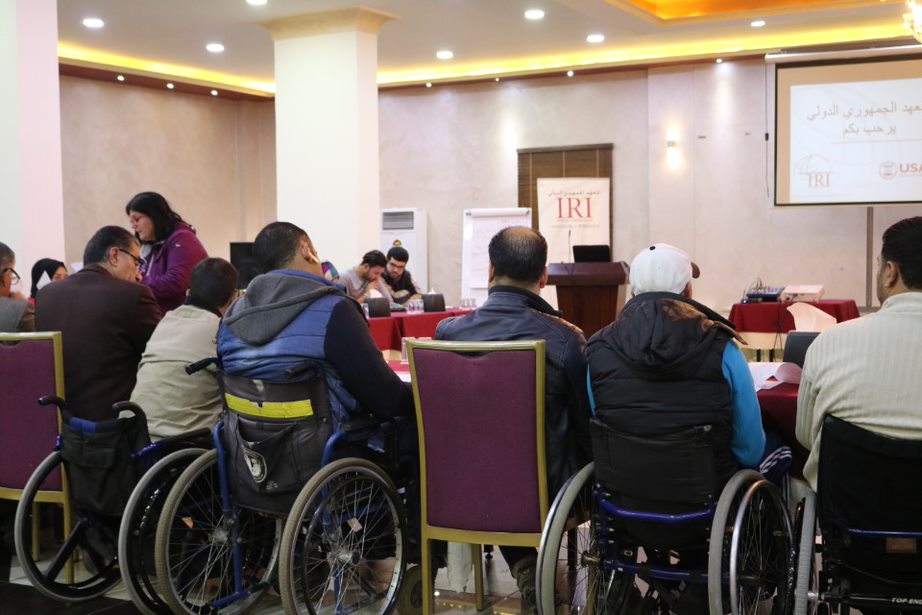Working Toward an Equitable Tomorrow for Persons with Disabilities

Today marks International Day of Persons with Disabilities (PWD), an occasion to recognize the contributions of the global PWD community and recommit to empowering this historically marginalized group. The COVID-19 pandemic has left an outsized effect on the PWD community, and efforts to ensure their needs are being communicated to decision-makers are more urgent than ever before. To underscore the importance of empowering PWD, the International Republican Institute (IRI) is spotlighting its work on this issue in Jordan, where the government has made progress in its inclusion of PWD but has much work to do to fulfill its commitments.
Jordan ratified the United Nations Convention on the Rights of Persons with Disabilities (CRPD) in 2008, and later passed legislation to realize the convention’s commitment to the inclusion of Jordan’s PWD community. However, poor implementation of these measures has meant that PWD remain marginalized in Jordan: According to a 2018 report issued by the Higher Council for the Rights of Persons with Disabilities in Jordan (HCD), “Most health and educational institutions, transport and touristic facilities, polling stations, justice facilities, reform and rehabilitation centers, places of worship, sports facilities and banks are not accessible for persons with disabilities.”
It is estimated that nearly 15 percent of Jordanians live with disabilities, and 30 percent of the country’s Syrian refugees have special needs. Despite the high number of PWD in Jordan, employment and income disparities remain. In 2017, for instance, only 32.8 percent of male PWD were employed, which is especially concerning considering unemployment jumped from 19.2 percent in early 2020 to 23 percent in the second quarter of the year. According to the 2017 census, 14.4 percent of Jordan’s population lives under the poverty line, and “the incidence of disabilities is twice as high among the poor as in the richest quintile.” PWD face difficulty accessing basic education and health services, and are excluded from much of daily life due to stigma and inadequate infrastructure.
In response, IRI has integrated PWD inclusion training into Jordan’s existing Citizen Committees – groups of volunteers who engage with public officials to communicate the needs of their municipalities. With the help of these trainings, PWD now participate in community initiatives with other members and liaise with public officials regularly, allowing them to demonstrate leadership and normalize PWD participation in public and political life. By facilitating discussion between this community and elected leaders, IRI has brought attention to the needs and priorities of PWD at all levels of government.
After joining one of these committees, alumnus Tuqa Al Majali now regularly collaborates with municipal officials to implement community engagement activities such as town hall meetings, surveys and election monitoring activities that amplify the voice of Jordan’s PWD community. Describing her involvement in Jordan’s recent parliamentary elections, Majali said, “Volunteering in the election demonstrated for people that we [PWD] are here, we participate and we are normal like any other citizen.”
Through the Citizen Committee trainings, IRI has both raised awareness about the challenges PWD in Jordan face and reduced the stigma that exists. After one seminar, for instance, participant and teacher Sahar Al Rawashdeh was motivated to build a ramp at the entrance of her school to enhance PWD access to education. Her experience with IRI helped her realize “how difficult it must be for students in wheelchairs to navigate the school grounds.”
Now more than ever, a renewed commitment to empowering the voices of PWD is needed. IRI is committed to making sure that PWD are meaningfully engaged and represented in Jordan.
Top